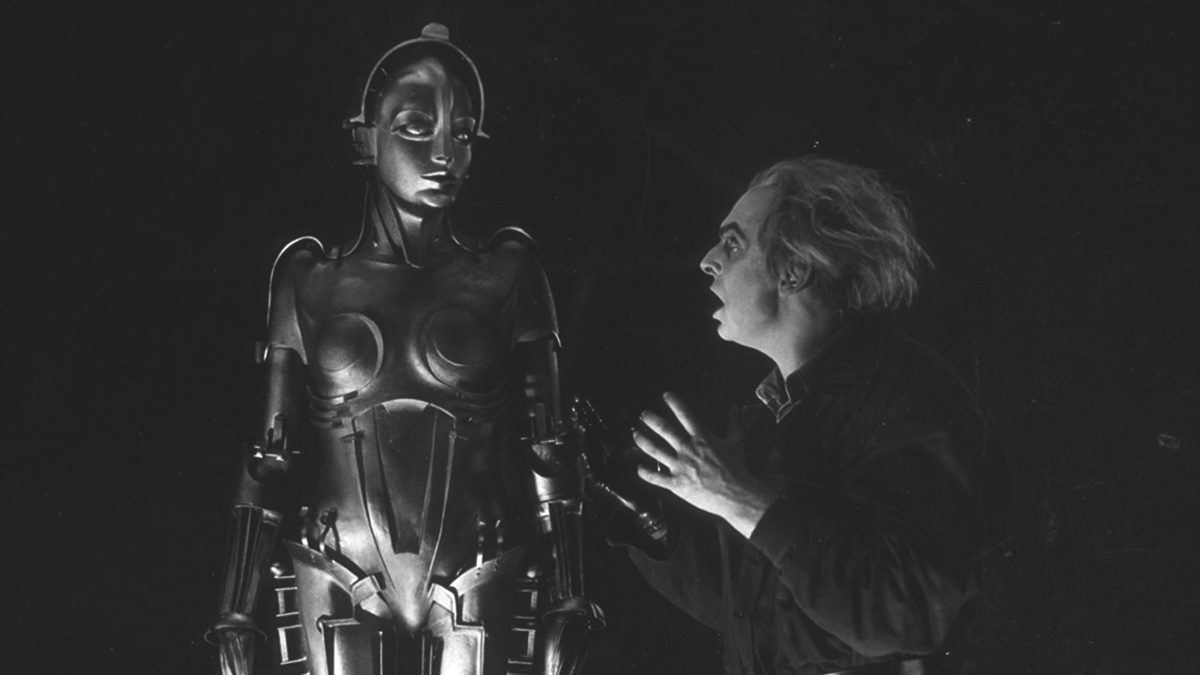Metropolis (1927)
Metropolis takes place is a divided city of the future. Up in the tall towers, the city planners live a privileged life of luxury. Down in the depths, the lowly workers labor at jobs that treat them like the machines they operate. One day, Freder, the son of the city’s main planner falls for a working class girl named Maria. She has predicted that the workers will soon have their savior in the form of a mediator who can negotiate a peace between the planners and the workers. Freder could be the one, but in order to succeed, he must stop an evil scientist, his twisted creation, his father, and eventually the workers themselves.
After 90 years, the models and miniatures of Metropolis still look outstanding. Sure, they aren’t the slick CGI from today’s films, but their eclectic forms and Art Deco influences create a world that draws you in none-the-less. The sweeping shots from a camera on a swing creates a living, three-dimensional world not represented on the silver screen before.
The overall theme between the haves and have nots is just as relevant today as it was back then. Industrialization has rendered the workers nothing more than flesh and bone machines that only serve their masters living in towers above them. The biblical story of the Tower of Babel is omnipresent in the film, and it parallels the conflict between the city planners and workers. Eventually, when the two worlds collide, everything comes crashing down.
The film has influenced many others including George Lucas’ Star Wars. However, it’s interesting to note another renowned science fiction writer, H.G. Wells, was not a big fan of the movie; calling it a foolish film. He did, though, write a screenplay for a similar movie titled Things to Come ten years later which was based on a novel he had written, The Shape of Things to Come. Many critics compared the two movies so much so, that you might even be able to catch them as a double feature to this day.
Rate the Film!
Chris Haley's Rating
Universum Film (UFA) released Metropolis on March 13, 1927. Fritz Lang directed the film starring Brigitte Helm, Alfred Abel, and Gustav Fröhlich.
